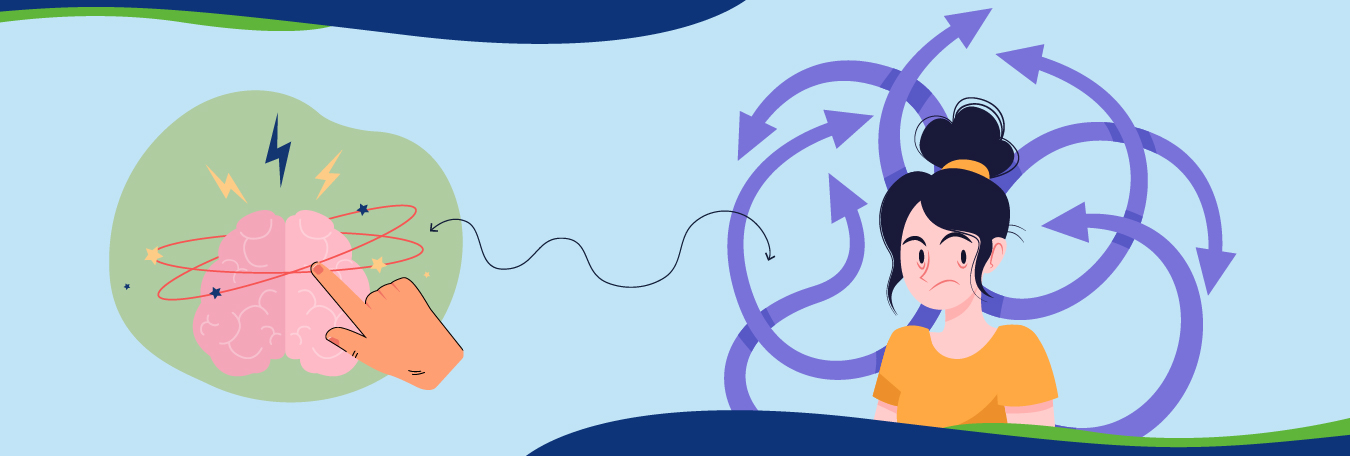ADHD has many different yet recognizable symptoms and one of these is time blindness. Time blindness, ADHD, and a lot of others tend to be spotlight symptoms, But this is where an affected individual persistently feels how fast time is passing and they have no spatial awareness about the passing of time. That is what we are going to discuss in greater detail in the words below: ADHD and time blindness. Let’s begin:
Defining ADHD
ADHD, or attention-deficit/hyperactivity disorder as it is called in its full form, is a neurodevelopmental disorder that predominantly affects children between the ages of 3 and 12 but can go well over into adulthood if it is left undiagnosed and untreated.
This is because ADHD is a debilitating disorder that affects the executive functioning of the affected individual. When we say it causes executive dysfunction, we are essentially saying that it affects an individual’s ability to properly participate in actions and do tasks that are needed to sustain everyday life. The inability to sustain these actions and tasks that come as a result of ADHD symptoms including time blindness in ADHD but also stuff like inattention, hyperactivity (as the name suggests), excessive and pervasive emotional dysregulation, impulsivity, procrastination, disorganization, restlessness, and anxiety.
Read More: ADHD and New Year’s Resolutions
What is Time Blindness? ADHD Might Tell You Something!
As mentioned before, time blindness in ADHD is a cognitive condition that causes difficulties in perceiving and managing time, which causes problems with punctuality and planning, both of which are important to sustain everyday life.
Many of us possess an “internal” neurological clock that helps us gauge the effects of elapsed time. In ADHD-affected individuals, this clock is simply not there. This is what is referred to as time blindness in ADHD. It essentially hinders your ability to meet deadlines, manage responsibilities, and plan effectively. The symptoms will elaborate more on this:
Time Blindness ADHD Symptoms
These are some of the common types of time blindness ADHD symptoms and highlight the association between ADHD and time:
- Time estimation is poor: You as an affected individual are either overestimating or underestimating time for particular activities leading to issues in proper time management.
- Extended or missing deadlines: As an affected individual will always have a hard time keeping track of any kind of deadlines, especially those that are related to work or school.
- Transitioning difficulty: Moving over to another activity is already a hard thing to do in ADHD, time blindness will bring a whole new layer of difficulty into it. Transitions during time blindness ADHD, you will struggle with shifting your focus or ending one task to start another.
- A sensation of time running rather quickly: During time blindness of ADHD, the affected individual will also feel how time passes by extremely quickly, which often gives them anxiety, stress, and depression.
- Chronic lateness: The affected individual tends to be chronically late due to the time blindness ADHD symptom. Affected individuals are often late due to critical appointments, social gatherings, and important meetings, which is stressful not only for you but also for the people with whom you had these time arrangements.
- Having issues with planning ahead: Planning is especially difficult as it is hard to envision and prepare for events or responsibilities that lie ahead with time blindness and ADHD in motion.
- Procrastination: Affected individuals also get into the habit of procrastinating a lot about whether they are wasting their time or not or if they will be able to do their tasks on time if the time is passing by so fast.
- Impulsivity: Rarely, the time blindness ADHD symptom leads to impulsivity, where the affected individuals are more keen to make choices without thinking about their stakes and consequences. When impulsivity is involved, it can also lead to something like an eating disorder (Schag et al., 2021).
Read More: Does Weather Affect ADHD? It’s Time To Lay Rest To All The Questions
Is Time Blindness a Symptom of ADHD?
Evidence has been found about how ADHD often leads to problems with proper time estimation and affected individuals may pervasively feel that time is moving so fast (Ptacek et al., 2019).
A review of the literature done on the subject matter (Weissenberger et al., 2021), bad time perception is one of the most overlooked symptoms of ADHD. Furthermore, the experts in the same review realized that the time blindness ADHD symptom might be at its core, even affecting behavior in the process (Weissenberger et al., 2021). So, the answer to your question, “Is time blindness a symptom of ADHD?”, is a resounding yes! At times, OCD and bipolar disorder can also cause time blindness.
Treatment Options for Time Blindness ADHD Symptom
Although lifestyle changes like regular exercise, breaking down tasks, or using a visual scheduler can help, these treatments in the following can also radically help:
Cognitive behavioral therapy (CBT): CBT, which is a form of psychotherapy, can help you develop better time management skills and improve your awareness of time-related challenges.
ADHD medication: Research (Ptacek et al., 2019) suggests that stimulant medications help with improving time perception. This relates to the regulation of dopamine levels in the brain, as dopamine plays an important role in aspects of the brain that are responsible for attention and time perception. At Inland Empire Behavioral Group, psychiatric medication management is available for a more monitored approach to ADHD medication.
Therapeutic support: Working with a mental health expert who specializes in time management and executive functioning can provide valuable guidance and strategies. Psychoeducation is another form of therapeutic support, which you can avail.
Read More: What is ADHD? Let’s Discuss Everything About It!
Conclusion
We understand what is a Time Blindness ADHD symptom and surely now you have the answers to questions like “Time blindness meaning?”, “Is time blindness real?” or “What is time blindness ADHD symptom?”. Although, it is not as harmful as, for example, psychosis, but should be looked at promptly. Perhaps, Inland Empire’s Behavioral Group can help via treatment options such as the ones mentioned above or alternative ones such as telehealth psychiatry.





